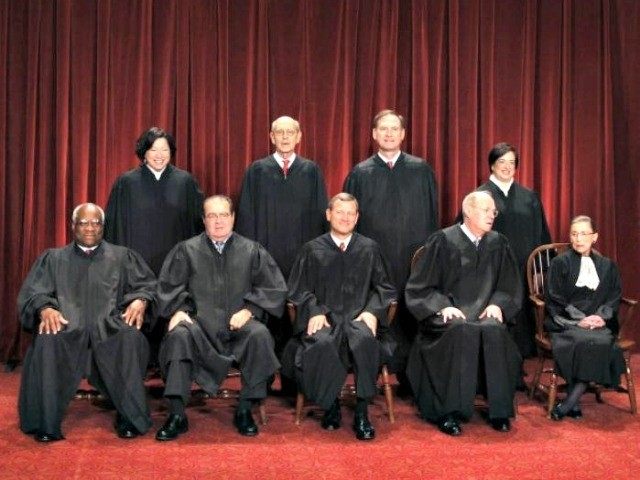WASHINGTON, D.C.—This week, the Supreme Court (SCOTUS) declined to review the case of New Hampshire Right to Life (NHRTL) seeking public information on whether the Obama administration coordinated with abortion provider Planned Parenthood. Two of the nine justices argued that the Court should have taken the case.
The Freedom of Information Act (FOIA) is a federal law that facilitates government transparency. FOIA requires government agencies to release any government records requested by the public, unless those records fall in one of the exceptions specified in FOIA, such as national security secrets. As the Supreme Court explained in a 1994, “FOIA reflects a general philosophy of full agency disclosure unless information is exempted under clearly delineated statutory language.”
NHRTL filed a FOIA request seeking information about a “family planning” grant from the U.S. Department of Health and Human Services (HHS) to Planned Parenthood, a grant made directly to Planned Parenthood without ever being opened up for public bids.
HHS refused to release the documents, and NHRTL sued, represented by attorney Michael Tierney and the Alliance Defending Freedom. President Obama’s Justice Department argued that HHS did not have to answer NHRTL’s request because of FOIA’s Exemption 4, which allows an agency to withhold material containing “trade secrets and commercial or financial information obtained from a person and privileged or confidential.”
A federal district court ordered HHS to disclose documents regarding several of NHRTL’s requests, but ruled in favor of HHS on the documents at issue in this appeal. Tierney and ADF appealed to the U.S. Court of Appeals for the First Circuit, which affirmed the district court’s refusal. They then petitioned the U.S. Supreme Court to review the case.
Justice Clarence Thomas, joined by Justice Antonin Scalia, would have granted review of this case, writing in dissent that the lower court’s decision rests on “judicial speculation about whether disclosure will cause competitive harm to the entity.” It takes four votes out of nine to grant a writ of certiorari to take a case at the Supreme Court. Justice Thomas added that the High Court should have done so here because the lower court’s decision “perpetuates an unsupported interpretation of an important federal statute and further muddies an already amorphous test.”
“We had hoped the U.S. Supreme Court would consider this case, which would have addressed whether the government can continue to veil its support for Planned Parenthood,” Tierney said in a statement this morning, joined by ADF. “HHS is withholding documents that are critical in evaluating apparently illegal funding that the administration provided to the abortion giant despite New Hampshire’s grave concerns and without following normal protocols.”
“Americans are already being forced to fund Planned Parenthood, which has become the subject of numerous investigations,” added ADF Senior Counsel Casey Mattox. “At the very least, the government must be transparent about this money.”
The Supreme Court denies review in 99 percent of the petitions presented to the Court each year. These denials are not in any way a reflection on the ultimate legal merits of the cases.
Ken Klukowski is legal editor for Breitbart News. Follow him on Twitter @kenklukowski.

COMMENTS
Please let us know if you're having issues with commenting.